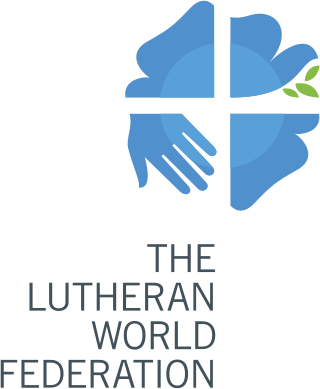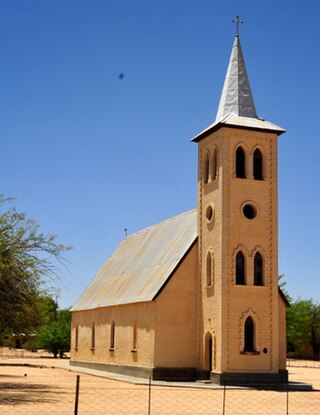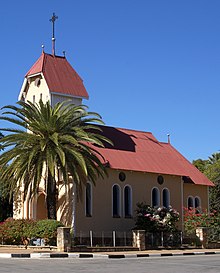A Christian denomination is a distinct religious body within Christianity that comprises all church congregations of the same kind, identifiable by traits such as a name, particular history, organization, leadership, theological doctrine, worship style and, sometimes, a founder. It is a secular and neutral term, generally used to denote any established Christian church. Unlike a cult or sect, a denomination is usually seen as part of the Christian religious mainstream. Most Christian denominations refer to themselves as churches, whereas some newer ones tend to interchangeably use the terms churches, assemblies, fellowships, etc. Divisions between one group and another are defined by authority and doctrine; issues such as the nature of Jesus, the authority of apostolic succession, biblical hermeneutics, theology, ecclesiology, eschatology, and papal primacy may separate one denomination from another. Groups of denominations—often sharing broadly similar beliefs, practices, and historical ties—are sometimes known as "branches of Christianity". These branches differ in many ways, especially through differences in practices and belief.

The Church of Iceland, officially the Evangelical Lutheran Church of Iceland, is the national church of Iceland. The church is Christian and professes the Lutheran faith. It is a member of the Lutheran World Federation, the Porvoo Communion, the Communion of Protestant Churches in Europe, and the World Council of Churches.

The Lutheran World Federation is a global communion of national and regional Lutheran denominations headquartered in the Ecumenical Centre in Geneva, Switzerland. The federation was founded in the Swedish city of Lund in the aftermath of the Second World War in 1947 to coordinate the activities of the many differing Lutheran churches. Since 1984, the member churches are in pulpit and altar fellowship, with common doctrine as the basis of membership and mission activity.
Protestantism originated from the Protestant Reformation of the 16th century. The term Protestant comes from the Protestation at Speyer in 1529, where the nobility protested against enforcement of the Edict of Worms which subjected advocates of Lutheranism to forfeit of all their property. However, the theological underpinnings go back much further, as Protestant theologians of the time cited both Church Fathers and the Apostles to justify their choices and formulations. The earliest origin of Protestantism is controversial; with some Protestants today claiming origin back to people in the early church deemed heretical such as Jovinian and Vigilantius.

High church Lutheranism is a movement that began in 20th-century Europe and emphasizes worship practices and doctrines that are similar to those found within Roman Catholicism, Eastern Orthodoxy and Anglo-Catholicism. In the more general usage of the term, it describes the general high church characteristics of Lutheranism in Nordic and Baltic countries such as Sweden, Finland, Estonia and Latvia. The mentioned countries, once a part of the Swedish Empire, have more markedly preserved Catholic traditions.

Otjimbingwe is a settlement in the Erongo Region of central Namibia. Otjimbingwe has approximately 8,000 inhabitants and belongs to the Karibib electoral constituency.

Lutheranism is present on all inhabited continents with an estimated 80 million adherents, out of which 74.2 million are affiliated with the Lutheran World Federation. A major movement that first began the Reformation, it constitutes one of the largest Protestant branches claiming around 80 million out of 920 million Protestants. The Lutheran World Federation brings together the vast majority of Lutherans. Apart from it, there are also other organisations such as the International Lutheran Council and the Confessional Evangelical Lutheran Conference, as well as multiple independent Lutheran denominations.

Christianity is the most prevalent religion in the United States. Estimates from 2021 suggest that of the entire U.S. population about 63% is Christian. The majority of Christian Americans are Protestant Christians, though there are also significant numbers of American Roman Catholics and other Christian denominations such as The Church of Jesus Christ of Latter-day Saints, Eastern Orthodox Christians and Oriental Orthodox Christians, and Jehovah's Witnesses. The United States has the largest Christian population in the world and, more specifically, the largest Protestant population in the world, with nearly 210 million Christians and, as of 2021, over 140 million people affiliated with Protestant churches, although other countries have higher percentages of Christians among their populations. The Public Religion Research Institute's "2020 Census of American Religion", carried out between 2014 and 2020, showed that 70% of Americans identified as Christian during this seven-year interval. In a 2020 survey by the Pew Research Center, 65% of adults in the United States identified themselves as Christians. They were 75% in 2015, 70.6% in 2014, 78% in 2012, 81.6% in 2001, and 85% in 1990. About 62% of those polled claim to be members of a church congregation.

Religion in Namibia is dominated by various branches of Christianity, with more than 90 percent of Namibian citizens identifying themselves as Christian. According to the government's survey, in 2013 up to 75% of the country was Protestant, including as much as 50% Lutheran.

Leonard Nangolo Auala was a Namibian Lutheran Church leader.

The Evangelical Lutheran Church in Namibia (ELCIN) is a Lutheran denomination based in Namibia. It has a total membership of over 853,522 in 2023, mainly in Northern Namibia. Formerly known as the Evangelical Lutheran Ovambo-Kavango Church (ELOC), it played a significant role in opposition to Apartheid in Namibia and was part of the Namibian independence struggle.
Nkurenkuru is a town on the south-western banks of the Kavango River. It is the capital of the Kavango West Region of northern Namibia, located 140 kilometres (87 mi) west of Rundu. It is also a former mission station of the Finnish Missionary Society.
Characteristic of Christianity in the 19th century were evangelical revivals in some largely Protestant countries and later the effects of modern biblical scholarship on the churches. Liberal or modernist theology was one consequence of this. In Europe, the Roman Catholic Church strongly opposed liberalism and culture wars launched in Germany, Italy, Belgium and France. It strongly emphasized personal piety. In Europe there was a general move away from religious observance and belief in Christian teachings and a move towards secularism. In Protestantism, pietistic revivals were common.

Protestantism is a branch of Christianity that emphasizes justification by God through faith alone, the teaching that salvation comes by unmerited divine grace, the priesthood of all believers, and the Bible as the sole infallible source of authority for Christian faith and practice. The five solae summarize the basic theological beliefs of mainstream Protestantism.

The Council of Churches in Namibia (CCN) is an ecumenical organisation in Namibia. Its member churches together represent 1.5 million people, 90% of the population of Namibia. It is a member of the Fellowship of Christian Councils in Southern Africa.
Lutheranism was first introduced to Angola in the late 1800s, when Finnish missionaries began working in northern Namibia and southern Angola. Following the Portuguese defeat of Mandume Ya Ndemufayo in 1917, the Lutheran church in Angola was repressed by the Roman Catholic Portuguese authorities. In 1956, Lutheranism was reestablished in Angola, and in 1991, the Evangelical Lutheran Church of Angola was organized as an independent church body. In 1997, a smaller group of conservative Lutheran missionaries helped to organize a second Angolan Lutheran church: the Confessional Lutheran Church in Angola.

The Evangelical Lutheran Church in the Republic of Namibia is a Lutheran denomination based in Namibia. It has a total membership of about 420,000.

The German-speaking Evangelical Lutheran Church in Namibia is a Lutheran denomination based in Namibia. It was founded in 1960, and has 4,100 members in 2023.













